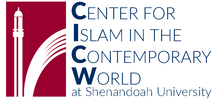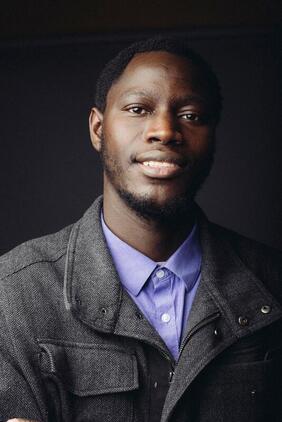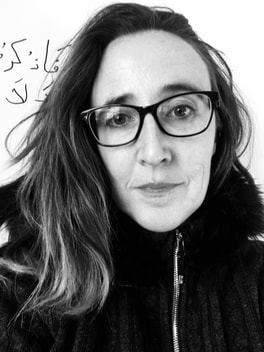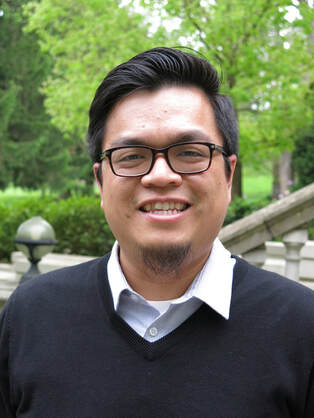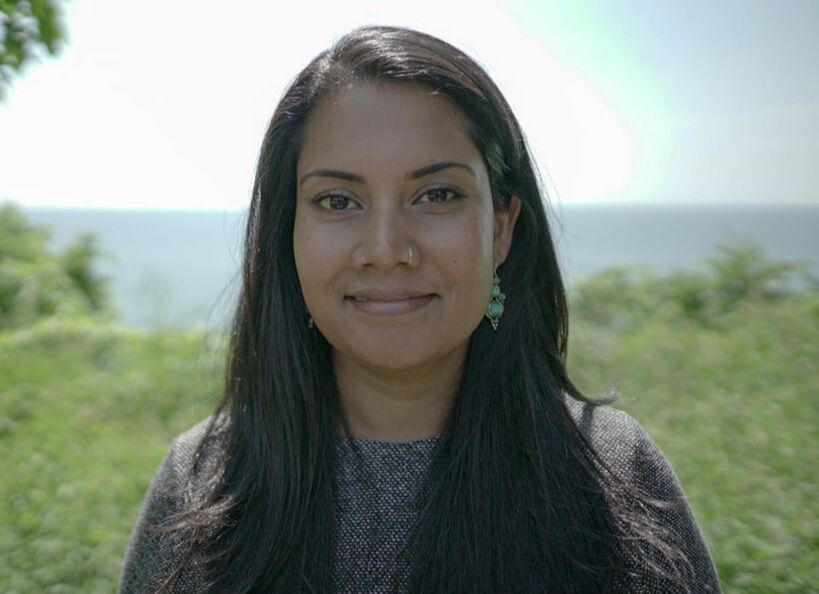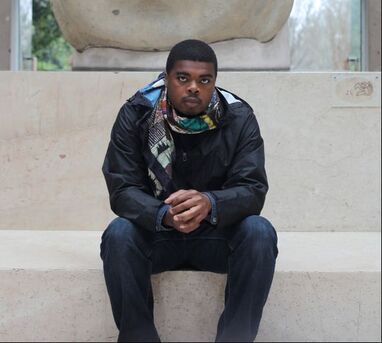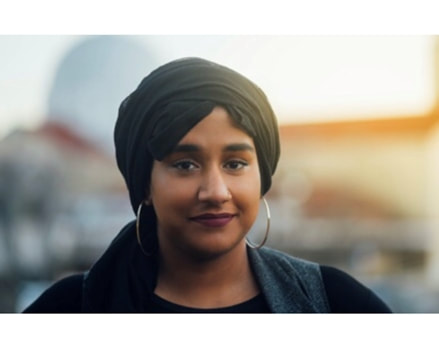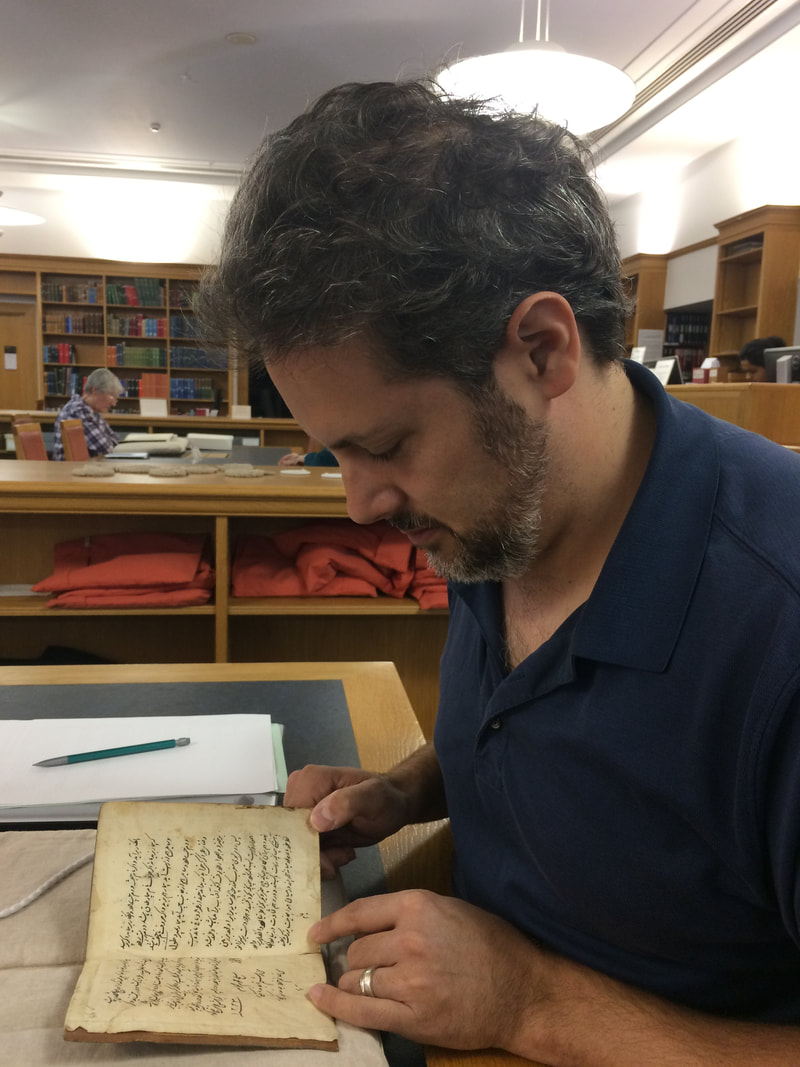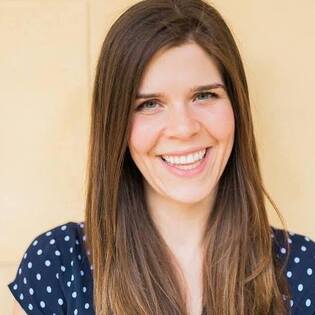Vertical Divider
2019 GRANT RECIPIENTS
This year's grants have been awarded under our "Islam on the Edges" research program. We are honored to have been able to award research grants to such an accomplished and diverse group of scholars and researchers. To learn more about "Islam on the Edges," please click here.
Macodou FallMacodou Fall is a doctoral student in religious studies at the University of Florida. He holds a B.A and an M.A in English from Cheikh Anta Diop University in Dakar and an M.A in African Studies from Ohio University. Macodou is interested in the study of Islam and popular culture in West Africa. His research project seeks to explore the history and progress of Islamic learning in Senegal with a focus on the Mouride urban organizations’ (Daairas) various teaching methodologies, which also include singing and the interpretation of Mouride texts via use of Ajami Wolof. Languages: Wolof, French, English, Arabic.
Daairas and their Impacts on Islamic Learning among Mourides in Senegal This research examines the role and organization of Mouride daairas. Daairas are urban religious institutions that are run by members of different Senegalese Sufi orders. Among them, the Muridiyya is one of the most prominent ones in present day Senegal. Within this order, the daaira is an important organization where the Mourides gather and perform different forms of devotional practices. Research on the Muridiyya and their history is vast, but, so far, it has neglected the ways in which members of these urban institutions disseminate knowledge about Islam and the Mouride ideology. A detailed study of the daairas’ organization and various teaching methodologies would help to understand the transformations of Islamic learning that took place among the Mourides over the last decades. For urban Mourides, the singing of the qasidas, their interpretation, and organization of religious events can constitute compelling substitutes for the previously prevalent daaras tarbiyyah, which are the Mourides’ traditional Quranic schools. |
Sophia ArjanaSophia Rose Arjana is Assistant Professor in the Department of Philosophy and Religion at Western Kentucky University. She has published three books including Pilgrimage in Islam: Traditional and Modern Practices (Oneworld, 2017). Her fourth book, Buying Buddha, Selling Rumi: Orientalism in the Mystical Marketplace will be published by Oneworld in May 2020. It explores mystical capitalism through contemporary Buddhism, Hinduism, and Islam. In 2018 and 2019, she conducted fieldwork for her next book, The Mosque with the Thatched Roof: Embodiment, Gender, and Material Religion in Indonesia, which will be published by Oxford University Press in 2021.
Sophia Arjana’s project, titled The Mosque with the Thatched Roof: Embodiment, Material Religion, and Gender in Indonesia, focuses on lived traditions, including prayer, dress, and pilgrimage, in Java and Lombok. These traditions are of interest beyond their distinct cultural expression. Indonesians represent the largest Muslim nation on earth, spread over an archipelago that is among the most ethnically and linguistically diverse populations on the planet. Dr. Arjana approaches her subject through case studies including a West Javanese village, the oldest mosque on the island of Lombok, Muslim shrines in northern coastal Java, and the fashion malls of Jakarta. Through these cases, she presents a portrait of Islam that is diverse, vibrant, and body-centered. |
Martin NguyenMartin Nguyen is Associate Professor of Religious Studies, Director of Islamic Studies, and Faculty Chair for Inclusive Excellence at Fairfield University in Connecticut. His scholarship revolves around Muslim theology and ethics, Qur’anic hermeneutics, Sufism, and the intersection of race and religion. His most recent book Modern Muslim Theology: Engaging God and the World with Faith and Imagination (Rowman & Littlefield, 2018) presents a contemporary theology rooted in the practice of the religious imagination. He is also the author of Sufi Master and Qur’an Scholar: Abū’l-Qāsim al-Qushayrī and the Laṭāʾif al-ishārāt (Oxford, 2012), which explores the confluence of Sufism, theology, and Qur’anic hermeneutics in the life and works of an eleventh-century mystic and scholar.
“A Theology of Malcolm X” represents part of a larger in-progress manuscript on modern Muslim ethics in response to the intertwined global dilemmas of the ongoing refugee crisis and structural racism. The grant will support the writing of three sections of the manuscript that analyze how Malcolm X (d. 1965) can be reconceived theologically as 1) a religious critic of empire, 2) a contemporary “prophetic” voice, and 3) as a paradigmatic example of the stranger in Islam. The focus on Malcolm X is intentional. This work, written for Anglophone Muslim communities, seeks to center the histories and traditions of these communities. This grant project will explore Malcolm X against the American backdrop of Christian supremacy, the Qur’anic vision of the prophetic experience, and the historic tradition of hadith commentary concerning Islam and the strangers (ghurabāʾ). |
Shobhana XavierM. Shobhana Xavier is an Assistant Professor in the School of Religion at Queen’s University, in Kingston, Canada. Her areas of interest include contemporary Islam and Sufism in North America and South Asia (Sri Lanka), especially as they pertain to questions of transmissions and transformation of Sufi practice and piety. She is the author of Sacred Spaces and Transnational Networks in American Sufism: Bawa Muhaiyaddeen and Contemporary Shrine Cultures (2018) and a co-author of Contemporary Sufism: Piety, Politics and Popular Culture (2017). Currently she is working on two book projects. The first is on Sufism in Canada, and the other is on Sufi shrines in contemporary Sri Lanka amidst growing anti-Sufism and growing islamophobia.
Project Description: Since the end of the almost three-decade civil war in Sri Lanka, a majority Buddhist nation, the socio-political climate has oscillated between reconciliation and ethno-religious violence. Though the island is home to diverse religious traditions, the varying religious communities are divided along ethno-linguistic identities and thus have experienced these political dynamics in differentiated ways. Sufi communities are uniquely positioned, as they are doubly marginalized. First by their co-religionists (anti-Sufi Muslims) who do not view them theologically as Muslims and second by Buddhist, Hindu, and Christian communities who do view them as Muslims but espouse varying forms of islamophobia. This precarious position held by Sri Lankan Sufis is most palpable in and around tombs (mazars) of Sufi saints. Using my ongoing ethnographic fieldwork in Sri Lanka, which I began in 2011, the following project charts the contentions over Sufi bodies because of growing ethno-national violence from the state, and intra-religious violence from Muslim co-religionists. |
Zain AbdullahDr. Zain Abdullah is Associate Professor of Religion & Society and Islamic Studies at Temple University. He is the author of Black Mecca: The African Muslims of Harlem, and his book on Black Muslims is forthcoming. His work appears in numerous journals and media outlets cite him frequently. Previously, as a Muslim chaplain pastoring to prison inmates and community organizer, he received the New Jersey State Assembly Resolution in 2005. He also consults on an upcoming PBS series on Muslim Americans and on a Netflix series on Malcolm X. Dr. Abdullah is a 2018 Ford Foundation Senior Fellow.
Islam: The Contested History of an American Idea This is an intellectual history about the idea of Islam in America over the past one hundred years. Beyond Islamophobia, it reveals a deep dispute over American identity and the national character. And it addresses the “Muslim Question,” as it replaces the much older “Jewish Question,” a series of ongoing debates throughout Europe about the marginal status of Jews. This kind of questioning identifies whole populations as problems, as the scholar-activist, W.E.B. DuBois, put it when addressing the “Negro Question” in 1903: “How does it feel to be a problem?” Just as Orientalism provided a rationale to justify European colonialism, today’s Islamophobia sanctions intolerance and even violence. This project chronicles the “Islam” in Islamophobia. More importantly, it captures the history of a debate about Islam through the landmark voices of six individuals and their contemporaries, an encounter that has taken many forms and produced complex relationships among Muslims and others. |
Sedrick MilesSed Miles is a self taught artist and activist. His artistic and political work focuses on themes related to identity, negritude and surrealism. His work expresses a spiritual link between documentary, fine art, and subjective narratives. Making great use of a double-voiced rhetoric, the signifying style of cultural critique, he cleverly initiates his view of this world with a formal visual vocabulary applied to the African Diaspora.
Sed Miles’s photography has been featured globally in galleries and public spaces throughout several communities where he’s been developing artistic work and relationships: the US, Mexico, Brazil, Senegal, UK, and France. His first book of photography, The Pathfinder, was self-published in 2015. Sedrick is currently a Ph.D. Fellow at The Stone Center for Latin American Studies at Tulane University focusing his research on extending theorizations of transnational blackness from critical race theories with an emphasis on the dialogues between the United States and Brazil. Check out his work at sedmiles.com. My project will be the completion of a photography-based research project that I began in Dakar in 2011. My months in Senegal allowed me to slow down and begin creating portrait work, inspired and transformed by the Islamic culture. The grant will allow me to complete the body of work which will be exhibited in Salvador Bahia, Brazil as a part of a socially engaged community practice I’ve been developing within my dissertation over the past two years. The two communities (Dakar/Salvador) share an intimate connection through the 1835 slave rebellion in Salvador, led by Wolof Muslims. The community in Salvador, Brazil will have the opportunity to engage with images of West African Muslim communities with warm, historic connections to Northeast Brazil. I will be in partnership with Zumvi Arquivo Fotografico (Zumbi Photography Archive). Zumvi houses a collection of more than 30,000 photos chronicling a century of Bahian history. This body of work completed with the help of CICW will be paired with echoing images from its diasporic kinsmen in Brazil from the Zumvi archive and my portfolio. I will use this transnational dialogue to activate spaces with the subjects’ collective gaze, narrating a new, double and quadruple-voiced representation by the subjects themselves in the space. This social engagement will strengthen the connections linking narratives across the Atlantic, in this case through the legacy of Islam in Brazil. |
Sana PatelI am a doctoral student at the University of Ottawa. Under the supervision of Dr. Lori G. Beaman, I study the religious behaviours of young Muslims in relation to social media. My MA work was on the construction of Muslim identity in Toronto. I am also a research assistant for Dr. Beaman coding Canadian media sources and SSHRC-sponsored pan-Canadian project titled Canadian Muslims Online. I have presented my research at many conferences including international conferences in US, Sweden, and Spain. My research interests involve studying digital religion, Muslims online, and shifts in religious authority.
My research project involves looking at how new digital technologies, in particular social media, have made way for spaces where online and offline ideas, identities, and communities meet and interact. It includes studying the activities of Muslim millennials on social media and examining the Toronto-based Reviving the Islamic Spirit (RIS) conference as an intersecting space of online and offline religion. By conducting qualitative interviews, I aim to answer the main question of how online and offline spaces impact the religious lives of North American Muslim millennials and how this relates to social media. |
Danielle Widmann AbrahamDanielle Widmann Abraham is Assistant Professor of Islamic Studies and Comparative Religion, and Wright Lecturer of the Middle East at Ursinus College in Collegeville, PA. She obtained a Doctorate in Theology in Comparative Religion at Harvard Divinity School.
PROJECT: Staging Resistance: Islam in the films of Ousmane Sembene Ousmane Sembene stands as a pivotal cultural figure in postcolonial West Africa. Known as “the father of African film,” the combined cinematic works of Ousmane Sembene (1923-2007) explore the effects of economic and social change in Senegal. As a Muslim and a writer who came of age during the period of counter-colonial struggle, Sembene was deeply committed to the project of decolonization and social reform, and he turned to filmmaking as a way to advance these projects to a wider public. Films were, in his view, an effective way to visualize alternative constructions of Muslim subjectivity in the postcolonial nation. A short-term grant from the CICW will enable me to travel to Dakar, Senegal in order to use the archives at the National Library of Senegal and at the West Africa Research Center. Additionally, I will be able to trace Sembene’s development as a filmmaker through the archives of the national film board, which are housed in the library. Finally, given that my project looks at questions of Islamic ritual, being able to trace the unique ritual practices in the local Senegalese context, including those that are depicted in the four films that are the core material of my analysis, will enable me to better articulate Sembene’s deft representation of Islamic ritual life in popular film. |
Matthew KuiperMatthew J. Kuiper is Assistant Professor of Religious Studies at Missouri State University in Springfield, MO. His research focuses on classical and modern Islam, and Islam in the Indian subcontinent. Kuiper earned his PhD from the University of Notre Dame in 2016. His academic articles have appeared in a number of publications, and his book, Da‘wa and Other Religions: Indian Muslim and the Modern Resurgence of Global Islamic Activism, was published by Routledge in 2017.
PROJECT: Kuiper is currently writing a seven-chapter book for Edinburgh University Press entitled Da‘wa: A Global History of Islamic Missionary Thought and Practice. Despite the importance of the concept of da‘wa (“inviting” to Islam; mission) in modern Islam, there are few introductory works in English on the subject. This book is intended to fill the lacuna by providing a readable survey of da‘wa from the Qur’an to the present. Chapters 1-4, which survey Islamic scripture and pre-modern history, are already written. Thus, between now and the end of 2019, Kuiper will be working on the final three chapters – chapters which will provide a global survey of da‘wa in contemporary times. While the Middle East, the historic heartlands of the Muslim world, will be given appropriate attention, these chapters will also highlight pioneering da‘wa trends emerging from the “edges” of the Muslim world; from regions like South and SE Asia, sub-Saharan Africa, North America, western and southern Europe, and others. |
Patrick D'SilvaPatrick J. D’Silva completed his PhD in Religious Studies (Islamic Studies concentration) at the University of North Carolina at Chapel Hill in 2018. His areas of research include Islam and Sufism in South Asia, Islamicate occultism, and post-colonial theory. In the past he has worked as a professional Arabic translator, taught at a variety of educational institutions, lived in Kenya and Sudan, studied in Egypt and Morocco, and traveled in India and Indonesia. Currently he is a lecturer in the Department of Philosophy at the University of Colorado – Colorado Springs. He lives with his family in Boulder, Colorado.
This project draws on my dissertation, “The Science of the Breath in Persianate India,” which analyzes a series of breath-centered divination practices originating within Sanskrit Śaivite Tantra in India that are eventually translated into Persian in the medieval period as `ilm-i dam (literally, “the science of the breath”). I am writing an article examining how versions of these divination texts appear on websites in contemporary Iran, especially one related to Ayatollah Hassan Zadeh Amuli. In this project, I am asking three main questions: What motivated religious officials and intellectuals in Iran to study Indian esotericism, specifically `ilm-i dam? What are the connections between this engagement with occultism in modern Iran and how previous generations interpreted similar materials? If a religious leader associated with a “center” of Islamic authority approves something from the “periphery,” what does that say about how conceptions of the relationship between, and nature of, both center and periphery? |
Kenneth ChitwoodKen Chitwood is a religion scholar with a Ph.D. from the University of Florida (Religion in the Americas and Global Islamic Studies). His academic work focuses on Islam and Muslim communities across the Americas, global Christianity, Christian-Muslim relations, & ethnographic methods and manifestations of religion beyond religion in a global and digital age. Additionally, he has published work on Judaism in Latin America and the Caribbean, religion and popular culture, and the idea of global heroism. Chitwood is an active religion newswriter having contributed reports, analysis, and commentary with Newsweek, Salon, The Washington Post, The Los Angeles Times, The Chicago Tribune, The Times of India, The Houston Chronicle, Religion News Service, and others. He is a journalist-fellow with the University of Southern California’s Center for Religion and Civic Culture’s Spiritual Exemplars Project.
Abstract Puerto Rican Muslims are “quadruple minorities” – Muslim in the Puerto Rican community, Puerto Rican in the Muslim community, and both Puerto Rican and Muslim in the context of the United States. The tension and opportunity that such a position makes possible allows for lively debates around topics such as identity and orthodoxy, community and culture, politics and the practical and material matters of faith. My multi-local ethnographic research explores the everyday and embedded cosmopolitan lives of Puerto Rican Muslims in Puerto Rico, the U.S. (New York, New Jersey, and Florida), and as part of online networks alongside “others.” My work fleshes out how they understand their relationship with the worldwide ummah given their strong sense of asabiyah (or “group feeling”). I argue that whether or not “Muslim cosmopolitanism” is something to be considered as an asset, it most certainly exists as an ideal and experienced ethic among Muslims – in this instance, those living on the perceived margins of the so-called “Muslim world.” |
Elisabeth BeckerElisabeth Becker is a postdoctoral fellow with the Religion & Its Publics Project and the Institute for Advanced Studies in Culture at the University of Virginia, as well as a non-resident fellow with the Muslim Diaspora Initiative, New America Foundation and the Institute for Social Policy and Understanding. She is currently completing her academic book, a comparative ethnographic work on European mosques (Unsettled Islam, contracted with University of Chicago Press), and has published on Muslim communities in Europe and the United States with the Journal of the American Academy of Religion, Ethnic & Racial Studies, Annual Review of Sociology, International Journal for Islamic Architecture, and Annals of Tourism Research.
Project description: I will focus on the completion of my book manuscript, Unsettled Islam: Virtuous Contention in European Mosques. In this project, I explore the intersectional inequalities faced by Muslims in London and Berlin by considering the status of Muslims in Europe as caste-like, shedding new light on the failure of legal integration to foster social inclusion. This conceptualization of difference unsettles notions of Europe-centric progress and modernity, as I trace the long history of Islam and Muslims in Europe, arguing that they have always been at the center of European conceptualizations of identity and borders. Combining this theory with thirty months of ethnographic study in two of Europe’s largest capital city mosque communities, I demonstrate how urban built and social environments together connect virtue as an individual mandate in Islam to virtue as a collective social response to marginalization. |
About our research grant program
Please check our website periodically for calls for research grants and fellowships. We do not accept unsolicited proposals. For further information, please email us at [email protected]. Thank you!
Our research programs
Islam on the Edges |
Interpreting the Qur'an in the Contemporary World
|
